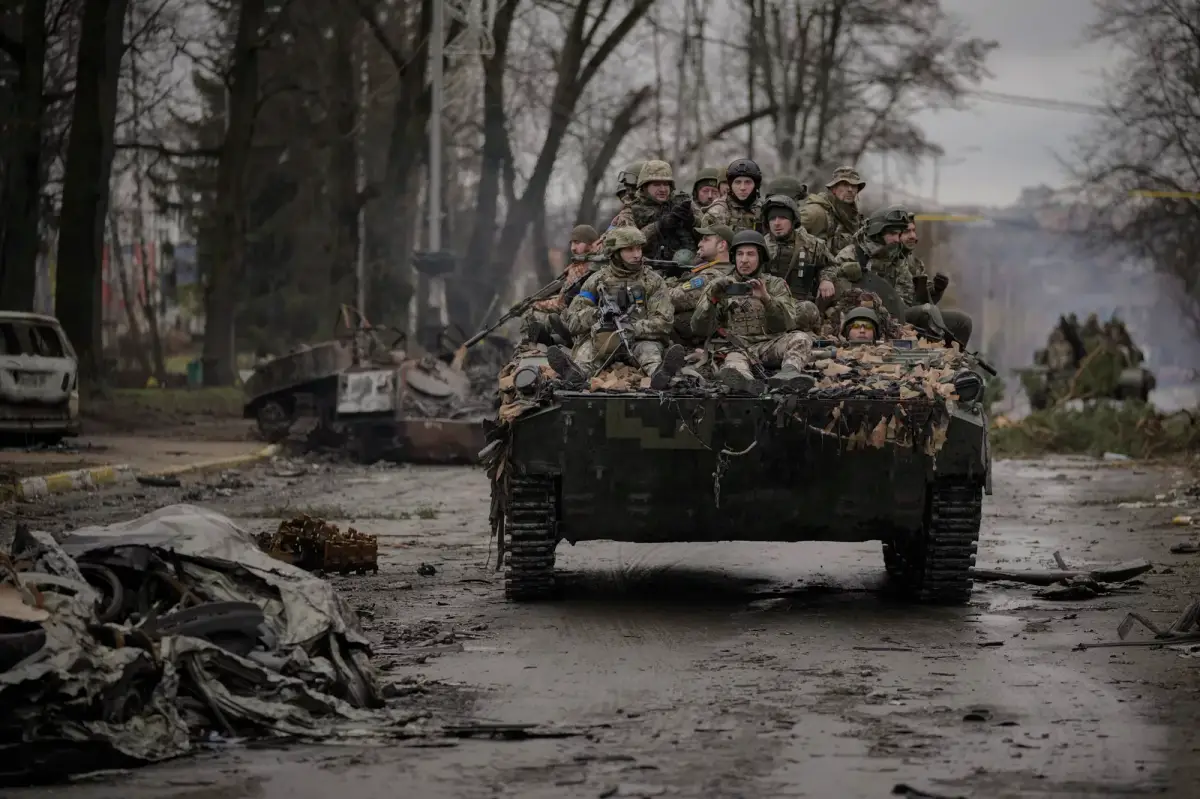A diplomatic clash has emerged within the Group of Seven (G7) over a joint statement marking the third anniversary of Russia’s invasion of Ukraine. The United States is reportedly opposing language that refers to “Russian aggression,” signaling a shift in Washington’s approach to the conflict.
Two Western officials familiar with the discussions revealed the dispute, highlighting the evolving stance from the White House. U.S President Donald Trump has controversially blamed Ukraine for the war, even likening President Volodymyr Zelenskyy to a “dictator.”
This marks a stark departure from how the Biden administration and G7 allies have framed the conflict over the past three years.
Washington’s Stance Threatens G7 Unity
The G7 is scheduled to meet virtually next week to mark the anniversary of the invasion. However, the U.S.’s resistance to directly blaming Russia is testing the bloc’s unity as the war enters its fourth year.
For years, G7 statements have consistently labeled the conflict as an “illegal war of aggression” and condemned “Russian aggression.” The group has been pivotal in coordinating aid to Kyiv.
Now, American envoys are reportedly questioning how the war is characterized. Trump has also floated the idea of allowing Russia back into the G7, despite its 2014 expulsion following the annexation of Crimea.
“The talks are still happening,” one Western official said, “but there is a lot of concern at equivocating who is responsible for the war.”
The Financial Times was the first to report on the ongoing discussions.
Trump’s Criticism of Zelenskyy Sparks Tensions
The White House did not respond to requests for comment. However, during a Thursday press briefing, U.S. National Security Adviser Mike Waltz confirmed Trump’s frustration with Zelenskyy, following Trump’s comparison of the Ukrainian leader to a dictator.
“President Trump is obviously very frustrated right now with President Zelenskyy,” Waltz said. “The fact that he hasn’t come to the table, that he hasn’t been willing to take this opportunity that we have offered – I think he eventually will get to that point, and I hope so very quickly. But President Trump, as we made clear to our Russian counterparts and I want to make clear today, he’s focused on stopping the fighting and moving forward.”
Trump has repeatedly blamed Ukraine for the ongoing war. On Wednesday, he posted on social media, “Think of it, a modestly successful comedian, Volodymyr Zelenskyy, talked the United States of America into spending $350 Billion Dollars, to go into a War that couldn’t be won.”
European Leaders Push Back Against U.S. Rhetoric
European allies have distanced themselves from Trump’s stance. French President Emmanuel Macron, set to meet Trump at the White House on Monday, pledged to confront him over his perceived leniency towards Russian President Vladimir Putin.
“I know Donald Trump. For four years, we were [both] in charge already during my first term. So he is someone I respect, who I believe respects me,” Macron said. “I’m going to say to [Trump], ‘Deep down you can’t be weak in the face of Putin, it’s not you, it’s not your trademark.'”
Macron also confirmed he had spoken to Zelenskyy twice in preparation for his Washington visit.
U.S. Envoy Pressures Kyiv Over War Terms
Meanwhile, in Kyiv, Trump’s envoy to Russia and Ukraine, Gen. Keith Kellogg, met with Zelenskyy to discuss U.S.-led efforts to end the conflict. Part of the discussion centered on American proposals offering Ukraine debt relief in exchange for access to its mineral revenues.
Zelenskyy’s refusal to accept the deal reportedly angered the White House. Trump’s aides criticized Zelenskyy for what they perceived as a lack of gratitude.
“There needs to be a deep appreciation for what the American people, what the American taxpayer, what President Trump did in his first term, and what we’ve done since,” Waltz said. “So some of the rhetoric coming out of Kyiv, frankly, and insults to President Trump, were unacceptable.”






